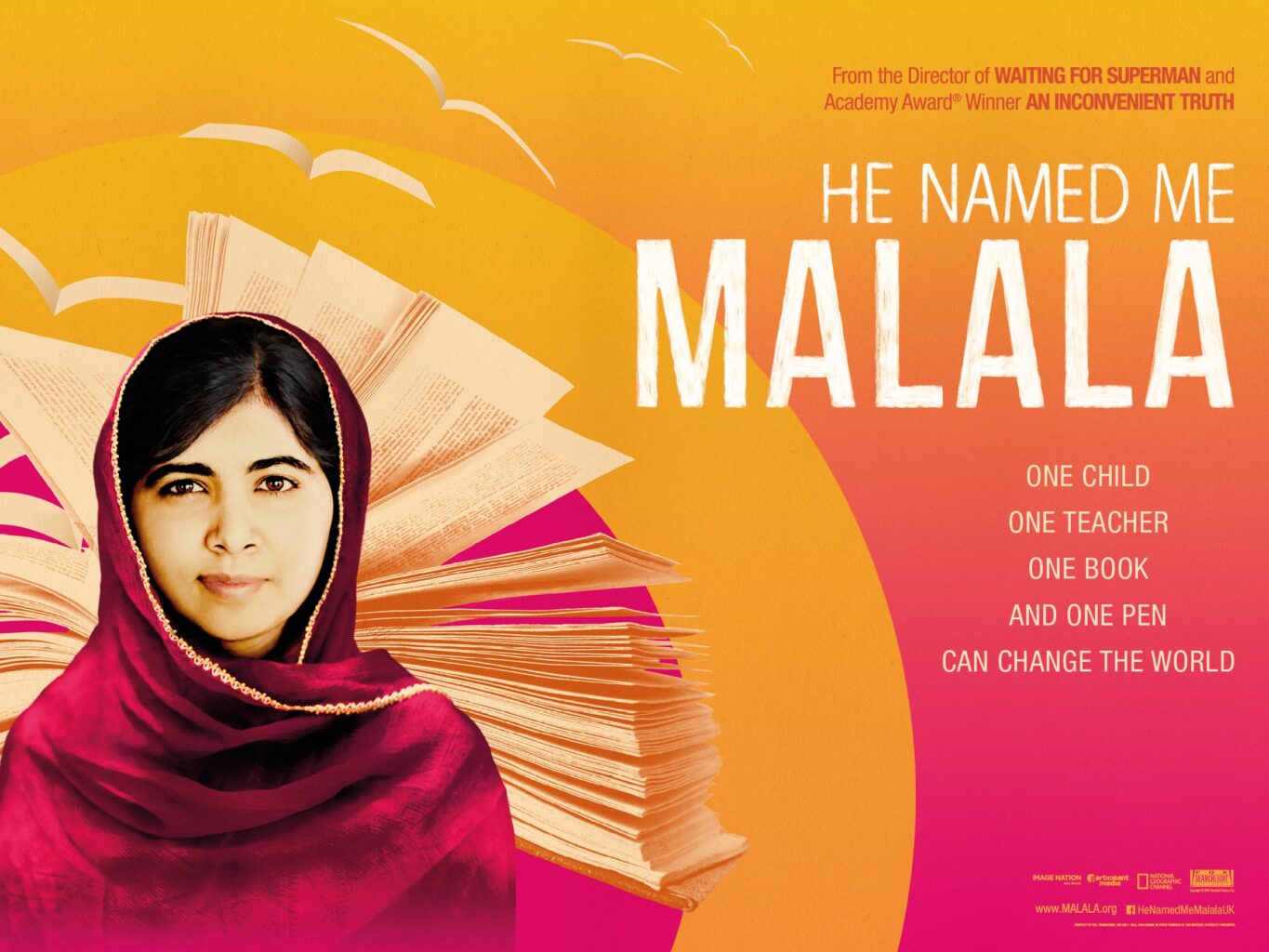He Named Me Malala is a documentary about Malala Yousafzai, which was released on Oct. 2. Photo by Fox Searchlight Pictures.
By ANA ALDRIDGE – Staff Writer
The story of Malala Yousafzai is one that people in our culture generally have no experience with, but the movie “He Named Me Malala” manages to make Malala’s story both relatable and empowering to people of any background.
“He Named Me Malala” is the empowering story of 18-year-old Pakistani activist Malala Yousafzai and her family.
The documentary provides a thorough and factual biography of Malala’s life, as well as her goals for the future. Using only footage from real interviews and videos Malala, the movie manages to capture her tight familial bond, and displays feelings of both pride and fear for Malala and her life which the Taliban hopes to end.
In the first few years of her life, Malala’s hometown was seized by the Taliban. The Taliban is an Islamic fundamentalist political movement in Afghanistan, which preys on those uneducated and afraid to gain control of the country. According to the documentary, the Taliban often makes demonstrations of their power by killing people and leaving them dead on the street.
One of the main focuses of the Taliban is to prevent women from receiving an education and they have burned down at least 400 schools in the past two years. Despite the extreme danger, Malala spoke out against the Taliban at merely 10 years old, making public speeches and videos encouraging people to fight the group. With the help of her father, Ziauddin Yousafzai, Malala became the face of courage for palestinian girls.
In “He Named Me Malala”, Ziauddin notes that no one ever thought that the Taliban, despite their horrors, would hurt a child. The were wrong. On Oct. 9. 2012, a gunman shot Malala and two of her friends on their bus ride home from school in an attempt to murder Malala for her dissent.
Following the attack, Malala was flown to Peshawar, Pakistan, for immediate treatment, and then flown to England for further medical attention. Malala was lucky to survive, but as a result of the shot, she lost nerve recognition in the left half of her face, as well as hearing in her left ear.
Her family and supporters were worried that Malala would not be the same after the trauma she endured. Malala’s injury, however, only made her emotionally stronger and she continues to advocate for women’s right to education.
Malala hopes to come home to Pakistan one day, but the Taliban has threatened to kill her if she returns, so for the time being she is living and attending school in England, as well as speaking and making public appearances to support her cause.
Since the shooting, Malala has become the youngest Nobel Peace Prize winner and has published her own book, I am Malala.
Malala should be a motivation to people of all genders and ethnicities to stand up against unfair treatment, and have the courage to speak their beliefs. Malala, however, is only one of many girls in the world to whom education is important. “I tell my story not because it is unique but because it is not,” Malala said.
